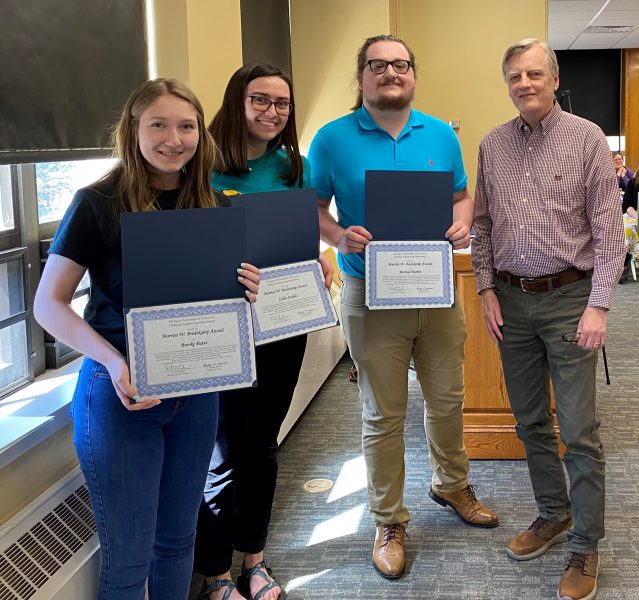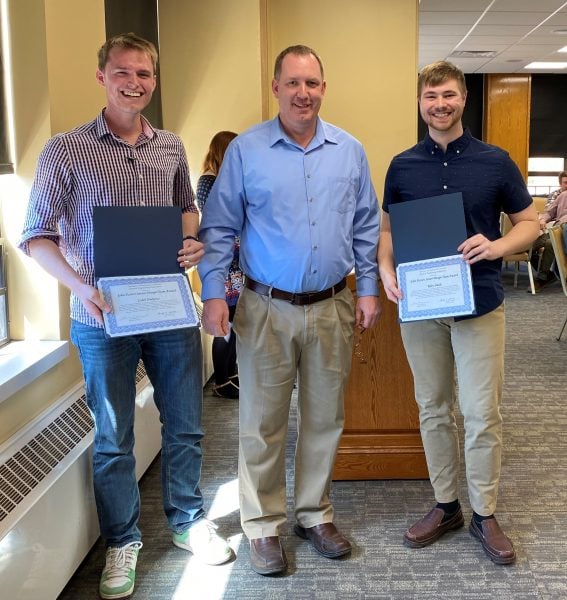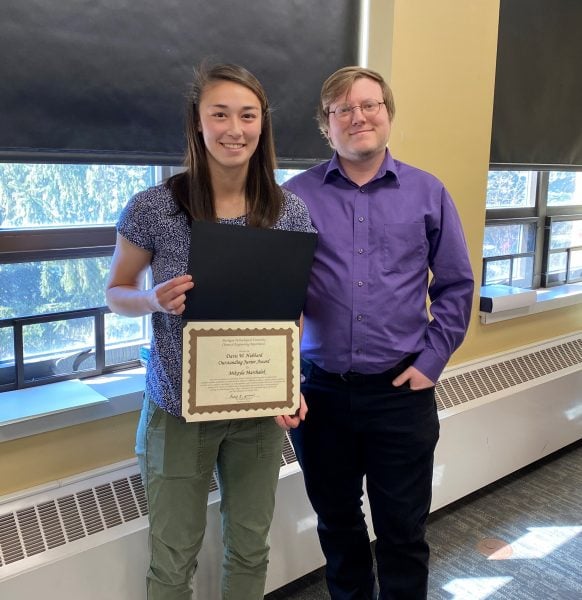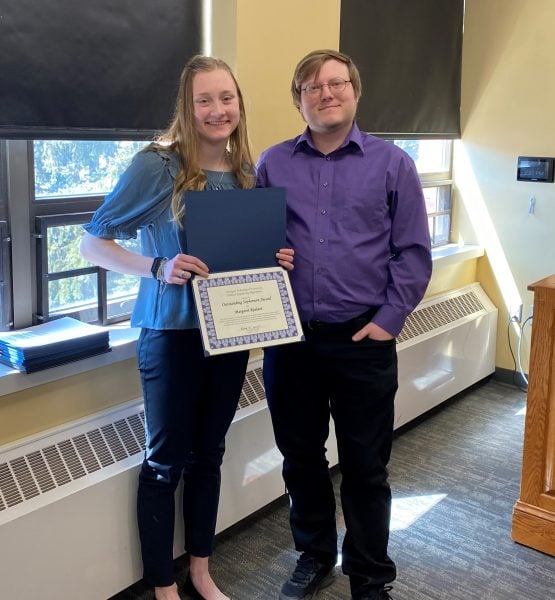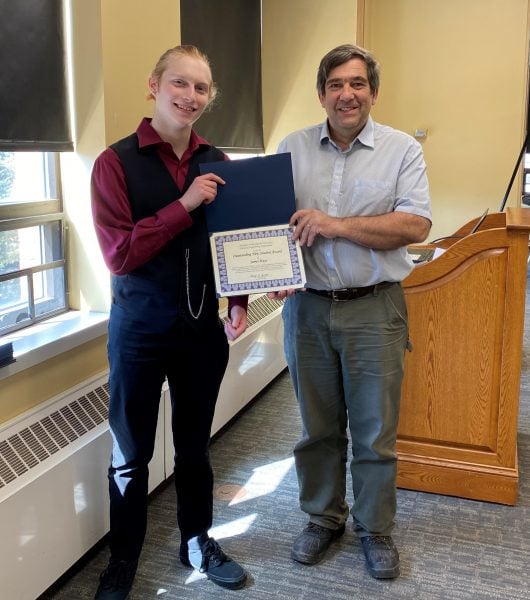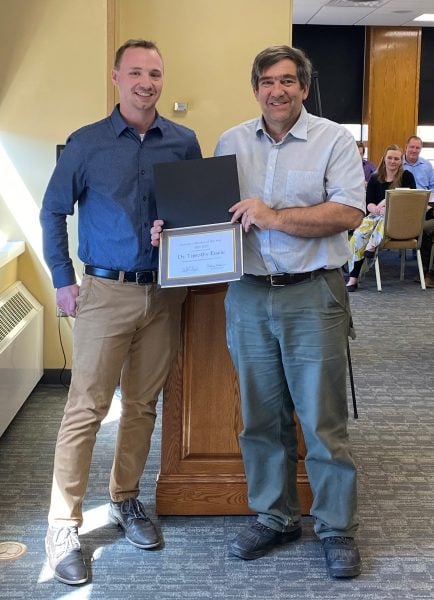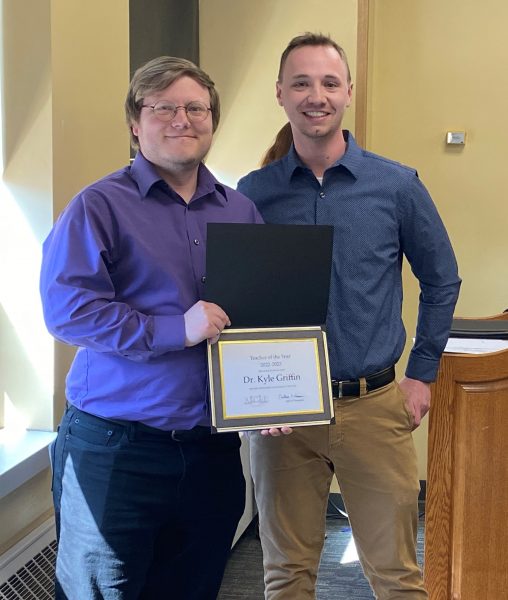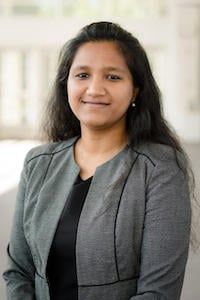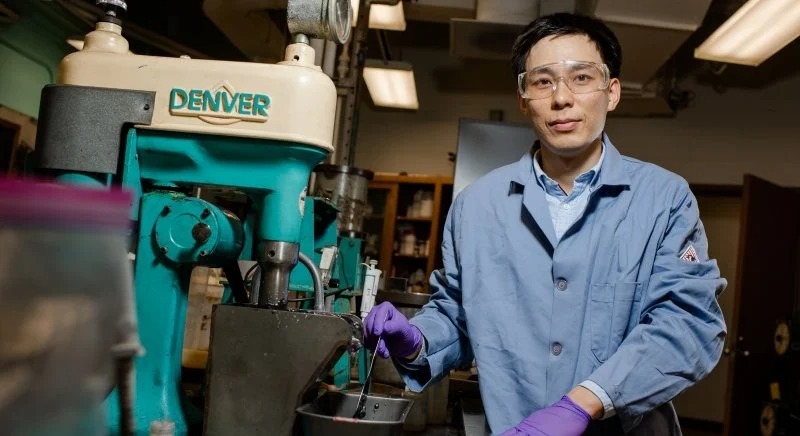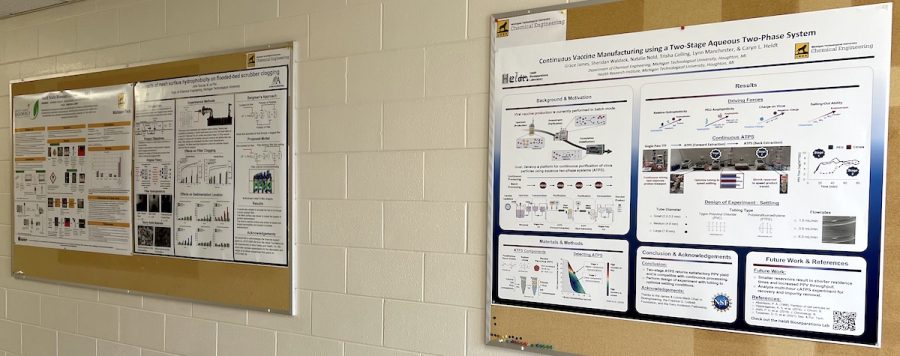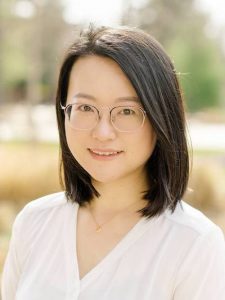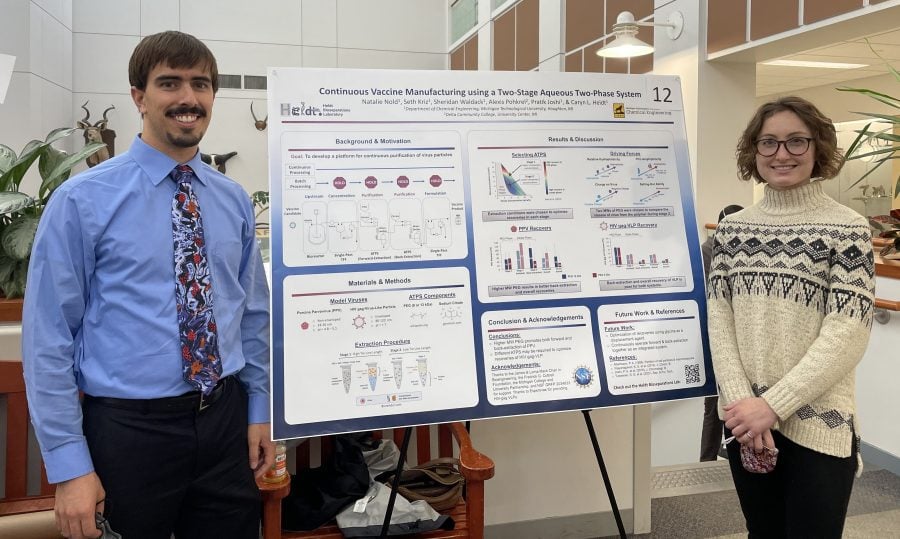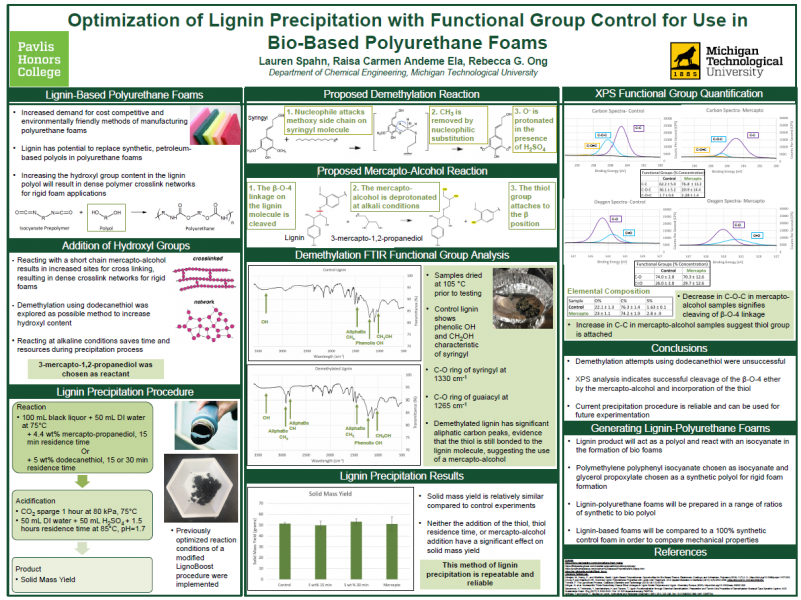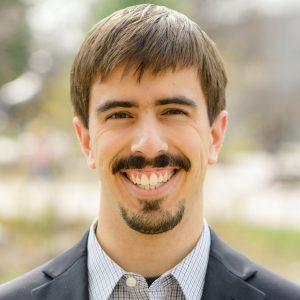These students, faculty and staff were presented awards on Friday (April 14) at the Department of Chemical Engineering (ChE) Convocation held in the MUB Alumni Lounge.
Bryan Glover, president and CEO of Honeywell UOP—the leading provider of technologies for the global energy and petrochemicals industries—was our keynote speaker. Glover graduated from Michigan Tech in 1986 with a BS in Chemical Engineering and he earned an MBA from the University of Chicago in 2009. In his 36 years with UOP, Glover has held positions across the company, including R&D, technical services and business management.
Congratulations to all!
Chair’s Award for Outstanding Chemical Engineering Senior
This award recognizes a graduating ChE senior for their academic achievement, experiential learning activities and community engagement. This award consists of a certificate and monetary award in the amount of $1,000.
Recipient: Brooke Bates
Excellence in Communication Award
This award acknowledges the critical role that effective communication plays in successful leadership and recognizes a graduating ChE senior for their effective use of communication of the highest standard.
Recipient: Zach Geiger
Professional Ethics Award
This award recognizes a student who has exhibited exemplary ethics and admirable professional conduct during Plant Design and Unit Operations experiences and throughout their academic career at Michigan Tech.
Recipient: Sheridan Waldack
Prevent Accidents With Safety (PAWS) Award
The Prevent Accidents with Safety (PAWS) Undergraduate Lab Safety Program is a comprehensive safety program requiring training, constant vigilance and incident reporting and documentation systems — all with an eye toward critical review and continuous improvement. The PAWS program provides a framework to develop the necessary safety culture within the student community.
Recipients: Lauryn Elsholz, Nicholas Henderson, Emerson Ross, and Nicholas Scott
Dow Chemical Marriott W. Bredekamp Award
This award recognizes outstanding technical skills in the laboratory, outstanding teamwork and professionalism, effective oral and written communication and strong adherence to process safety practices as recognized by your peers and supported by the faculty of the department. This award is in memory of Marriott W. Bredekamp.
Recipients: Brooke Bates, Michael Durbin, Lydia Jackels, and Nick Schiavo
Senior Design Team Awards
John Patton, as chair and faculty member, initiated much of today’s design course content in ChE. He brought his experiences at Exxon to the classroom to provide students with a systematic way to design and analyze a new, large-scale capital project. This award recognizes the student team in CM 4861 that created the best plant design and recommendation for Fictitious Chemical Company. It is given in recognition of the engineering design and creativity, safety and environmental considerations, technical communication skills, and teamwork in the capstone design project.
Finalist Teams
Third Place ($400): Amelia Kramer, Tailyn Klepsa-Orrey, TJ Stachowski, and Steven Markert
Runner-Up ($600): Zach Geiger, Andy Ward, Jordan Rathke, and Kyle Hooper
Winner ($1,000): Caleb Diekema, Josiah Diekema, Riley Smith, and Kade Wirth
Davis W. Hubbard Outstanding Junior Award
The eligible candidate for this award has completed all their junior-level core chemical engineering courses. Selection is based on GPA for coursework done at Michigan Tech, research engagement and internship/co-op work experience. The award consists of a certificate and monetary award in the amount of $1,000.
Recipient: Mikayla Marshalek
Outstanding Sophomore Award
This award recognizes an outstanding sophomore in chemical engineering who has demonstrated exemplary academic performance in coursework and exhibited excellence in related academic enrichment activities such as research, internship/co-op work experience and Enterprise Program.
Recipient: Margaret Roelant
Outstanding New Student Award
This award recognizes an outstanding new student in chemical engineering who has demonstrated exemplary academic performance in coursework and exhibited excellence in related academic enrichment activities such as research, internship/co-op work experience and Enterprise Program.
Recipient: James Hays
Leadership Awards
Recipients:
AIChE: Nathan Summers
CMLC: Michael Durbin
CPM: James Staley
OXE: Nathan Summers
SAB: Riley Smith
AEE: Libby Umlor
Green Campus: Ray Buenzli
Finally, ChE students voted on these categories to honor our outstanding department employees!
- Teacher of the Year: Kyle Griffin
- Research Mentor of the Year: Timothy Eisele
- Graduate Teaching Assistant of the Year: John Szczap
- Undergraduate Grader of the Year (tie): Michael Johnson and Riley Smith
- Staff Making a Difference: Katie Torrey
- Peer Mentor and Coach of the Year: Riley Smith
